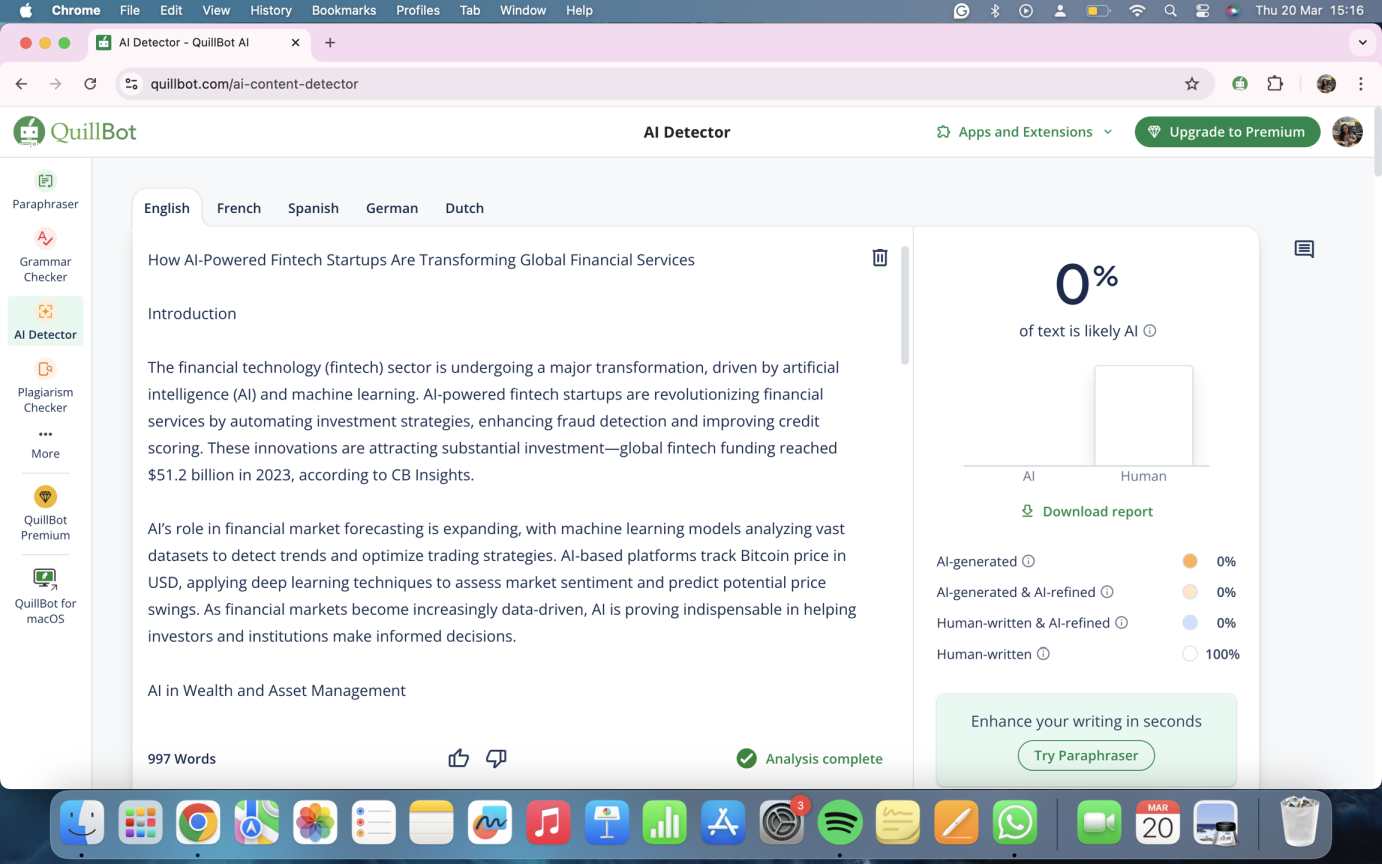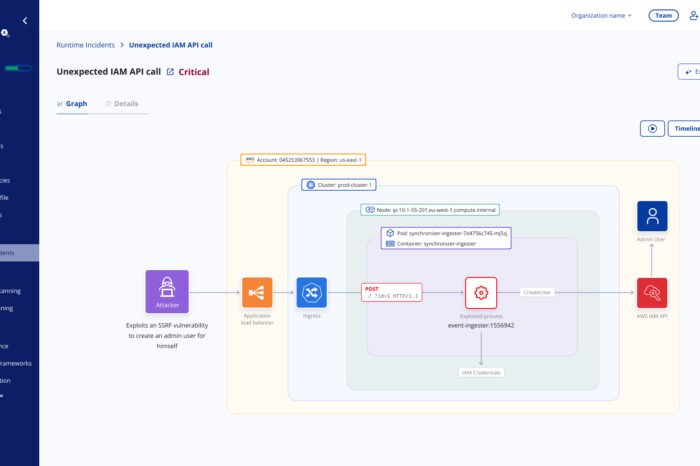How AI-Powered Fintech Startups Are Transforming Global Financial Services

The financial technology (fintech) sector is undergoing a major transformation, driven by artificial intelligence (AI) and machine learning. AI-powered fintech startups are revolutionizing financial services by automating investment strategies, enhancing fraud detection, and improving credit scoring. These innovations are attracting substantial investment—global fintech funding reached $51.2 billion in 2023, according to CB Insights.
AI’s role in financial market forecasting is expanding, with machine learning models analyzing vast datasets to detect trends and optimize trading strategies. AI-based platforms track Bitcoin price USD, applying deep learning techniques to assess market sentiment and predict potential price swings. As financial markets become increasingly data-driven, AI is proving indispensable in helping investors and institutions make informed decisions.
AI in Wealth and Asset Management
Robo-advisors are now commonplace in wealth and asset management. They identify investment patterns, enhance portfolio performance and develop individualized approaches to managing finances. Companies such as Betterment and Wealthfront are using automated AI-powered platforms to provide retail investors with automated proxy funds at a reasonable cost.
A Deloitte study revealed that 80% of financial companies predict AI will be vital for wealth management by 2025. These platforms use real-time market information to modify investment approaches along with funds, thus minimizing human error alongside its risks.
AI-Enabled Fraud Detection and Risk Evaluation
Fraudulent financial activities cost global companies over $42 billion each year, as per PwC’s Global Economic Crime Survey. The old-fashioned method of eliminating fraudulent activities relies on manual processes that rigidly check a set of static rules and are incapable of addressing dynamically changing cyber threats. Real-time anomaly detection and predictive analytics are helping AI-powered fintech startups eliminate fraud.
Companies like Hawk AI and Feedzai utilize the power of machine learning to monitor and check for fraud and other suspicious activities by analyzing numerous transactions every second. Predictive AI also improves identity verification processes along with biometric authentication to provide an additional layer of protection against cybercrime.
AI-Enhanced Lending and Credit Rating
AI-based lending platforms are incorporating nontraditional data sources, providing other companies, which previously wouldn’t have qualified for credit, to take loans. Unlike the conventional credit scoring systems that put so much emphasis on credit history, AI-powered models focus on online activity, shopping activity, employment background, and other forms of mobile phone interactions to make different evaluations.
For instance, Upstart, which is a lending platform that uses AI, analyzes borrower risk by applying machine learning technologies rather than relying on credit scores. With the use of this new approach, loan approval accuracy increased by 20–30% as well as reduced probable chances of defaults. In the same fashion, Zest AI helps lenders support the underbanked by providing more accurate and unbiased models of credit risk.
Moreover, AI is greatly transforming automated loan underwriting by increasing the speed of approvals and decreasing the time needed to process applications from weeks to minutes. This gives borrowers access to financing sooner, while financial institutions can improve their risk management processes with the additional data provided.
AI in Compliance and Financial Surveillance
One of the most difficult and expensive areas in the financial industry is compliance management, due to penalties reaching millions for non-compliance. Startups in AI-driven RegTech (regulatory technology) solutions assist fintechs with the automation of compliance, transaction monitoring and detection of financial crimes.
ComplyAdvantage and Ascent are startups that examine suspected faces and compliance risks with the use of RegTech AI systems that look at transaction records. The AI systems scan changes in regulations from around the world as they happen, ensuring that financial institutions follow the rules and never fall behind the constantly changing requirements.
A Juniper Research Report stated that the RegTech industry is expected to reach $16 billion by 2025, with market compliance leaders being powered by AI. With the tightening of regulations globally, compliance will be met effectively and cost-efficiently with the help of AI by startups and institutions alike.
Role of AI in Predicting Trends and Forecasting Financials
Investors appreciate the assistance AI offers in forecasting market movements and are making more AI-informed decisions. Using historical data along with real-time analytics, AI-powered platforms study the market and recognize investment trends for forecasting future prices of assets.
For instance, certain AI models observe USD prices of Bitcoin and utilize deep learning to determine if the conditions for purchase or sale are favorable, especially within the context of rapidly changing environments. An algorithm’s ability to identify thousands of signals at any given time gives traders a head start in these competitive markets where speed is essential and human intervention is limited.
AI has extended its applications beyond crypto markets to equities, forex, real estate, and commodities, making accurate and timely financial predictions available to all.
The Future of AI in Fintech
The newest startup AI adaptations in fintech range from automating finance to enhancing predictive analytics and even improving fraud detection. AI is bound to affect:
- Banking services to be more personalized and engaging with constituents’ expense behavior.
- An AI-implemented portfolio performance investment optimizer.
- Better cyber fraud security tools for preventing more advanced forms of hacking.
- The McKinsey report shows that AI can potentially enable banks and other finance institutions to cut operational costs and improve productivity by as much as 25% by 2030.
Unfortunately for the fintech newcomers, being competitive in the game is no longer an option; it is necessary to clash with the already automated ecosystem using AI-driven strategies.
Conclusion
The era of change for AI-empowered fintech startups has arrived, rapidly transforming the efficiency, security, and, above all, accessibility of financial services. The application of AI in automated wealth management, lendin,g and even fraud detection has redefined the way the expenditure of financial institutions is managed.
The continuous development of AI technology will allow more fintech startups to widen the scope of financial inclusion and ease the complexity of investment decisions, along with fraud prevention. After all, the more clients are involved, the quicker the evolution of fintech we are promised.





